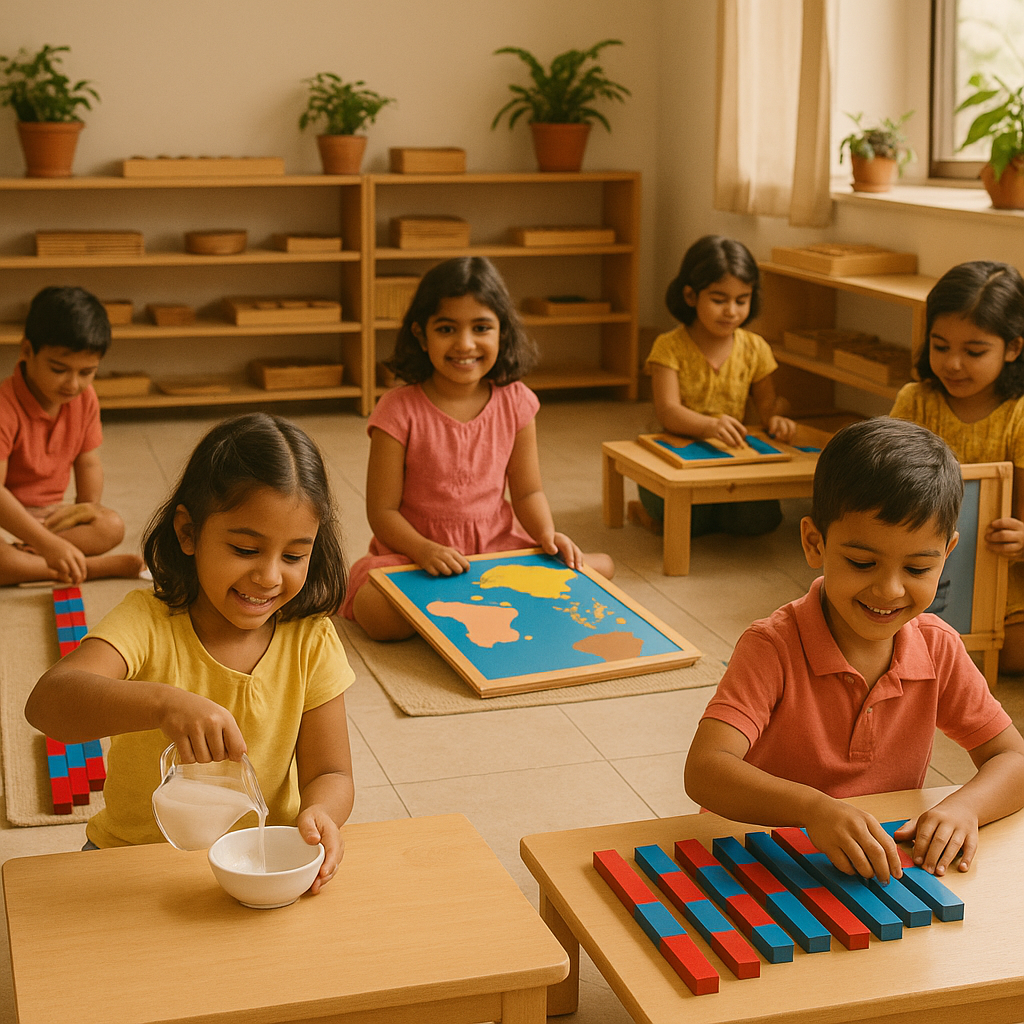How Montessori Builds Independence in Young Children
One of the most remarkable aspects of the Montessori method is its focus on nurturing independence from an early age. Unlike traditional education systems that often rely on adult direction, the Montessori approach empowers children to take charge of their own learning journey — confidently, curiously, and with purpose.

- Freedom Within Limits
Montessori classrooms are thoughtfully prepared environments where children are free to choose their activities, but within clearly defined boundaries. This structure helps children develop decision-making skills, time management, and personal responsibility — all while exploring their own interests at their own pace.
“Never help a child with a task at which he feels he can succeed.” – Maria Montessori - Child-Sized Environment
Everything in a Montessori environment — from furniture to tools — is designed to fit the child. When shelves, materials, and even handwashing stations are accessible to them, children naturally learn to care for themselves and their surroundings. This builds confidence and a sense of ownership over their space. - Practical Life Activities
Montessori places great emphasis on practical life skills. Children as young as two engage in activities like pouring water, buttoning shirts, sweeping, cooking, and gardening. These tasks, while seemingly simple, foster fine motor skills, concentration, and — most importantly — self-reliance. - Self-Correction and Reflection
Montessori materials are designed with built-in “control of error,” meaning children can recognize and correct their mistakes without needing adult intervention. This allows them to learn through trial and error, which boosts self-esteem and internal motivation. - Respect for the Child’s Pace
Montessori guides (teachers) observe and support rather than instruct or interrupt. This respectful approach nurtures patience, focus, and confidence. Children are trusted to lead their own learning, and as a result, they begin to trust themselves. - Intrinsic Motivation Over Rewards
Montessori education avoids stickers, prizes, or grades. Instead, children are encouraged to find joy in the process, not the product. The sense of fulfillment they feel when they complete a task or master a skill becomes their true reward — laying the foundation for lifelong independence and self-motivation.
Final Thoughts
Montessori isn’t just an educational approach — it’s a way of helping children become capable, confident, and independent individuals. By trusting children with meaningful responsibilities and giving them the tools and environment to thrive, Montessori sets the stage for a lifetime of self-directed growth.
At a Montessori school, we don’t just prepare children for school. We prepare them for life. - Mixed-Age Classrooms
In a Montessori environment, children typically work in mixed-age groups. Younger children learn by watching older peers, while older children reinforce their knowledge by helping younger ones. This dynamic promotes collaboration, empathy, and leadership — key aspects of independent thinking.
